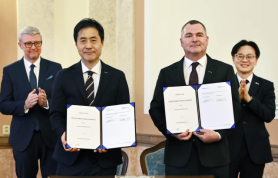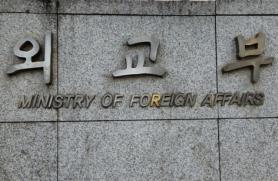
North Korea's Korean Central News Agency criticized the recent U.S.-South Korea joint statement, claiming it reveals a hostile stance and could destabilize military security in the Asia-Pacific region.
The agency argued that South Korea's pursuit of nuclear submarines could lead to a 'nuclear domino effect' and escalate an arms race. This response followed the joint fact sheet released on Nov. 14.
North Korea's reaction is perplexing, given its own nuclear developments. The term 'nuclear domino' is particularly striking. If North Korea had not pursued nuclear weapons or submarines, it might have grounds to criticize South Korea.
However, North Korea's nuclear arsenal is a significant global threat, making its stance questionable.
Two motives may underlie North Korea's comments.
First, it seeks to emphasize its status as a de facto nuclear state. Unlike official nuclear weapon states under the Nuclear Non-Proliferation Treaty (NPT), North Korea withdrew from the NPT after receiving nuclear technology and support. Recognizing North Korea as a nuclear state could encourage other countries, like Ukraine, to follow suit. Ukraine, once the third-largest nuclear power, might reconsider its stance due to its conflict with Russia.
Second, North Korea's reaction may stem from anxiety over South Korea's potential acquisition of nuclear-powered submarines, which could disrupt China's maritime strategy. President Lee Jae-myung's push for nuclear submarines marks a significant shift in South Korea's defense capabilities. During a summit with President Trump, Lee highlighted the limitations of diesel submarines and advocated for nuclear fuel to enhance regional defense and reduce U.S. operational burdens.
Critics argue that developing nuclear submarines could heighten regional tensions. However, historical evidence suggests tensions can escalate independently of such developments.
North Korea's response underscores the strategic necessity for South Korea to pursue nuclear-powered submarines, emphasizing the importance of realistic power dynamics in international politics.
Author's Background
* This article, published by Aju Business Daily, was translated by AI and edited by AJP.
Copyright ⓒ Aju Press All rights reserved.




